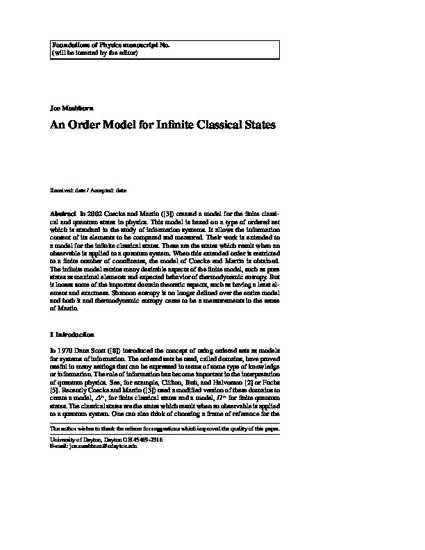
In 2002 Coecke and Martin (Research Report PRG-RR-02-07, Oxford University Computing Laboratory,2002) created a model for the finite classical and quantum states in physics. This model is based on a type of ordered set which is standard in the study of information systems. It allows the information content of its elements to be compared and measured. Their work is extended to a model for the infinite classical states. These are the states which result when an observable is applied to a quantum system. When this extended order is restricted to a finite number of coordinates, the model of Coecke and Martin is obtained. The infinite model retains many desirable aspects of the finite model, such as pure states as maximal elements and expected behavior of thermodynamic entropy. But it looses some of the important domain theoretic aspects, such as having a least element and exactness. Shannon entropy is no longer defined over the entire model and both it and thermodynamic entropy cease to be a measurements in the sense of Martin.
- Classical states,
- Quantum states,
- Information system,
- Bayesian order,
- Domain,
- Weak domain,
- Entropy,
- Shannon entropy
Available at: http://works.bepress.com/joe_mashburn/3/

The document available for download is the author's accepted manuscript; differences may exist between this version and the published version; as such, researchers wishing to quote directly from this source are advised to consult the version of record.
Permission documentation is on file.